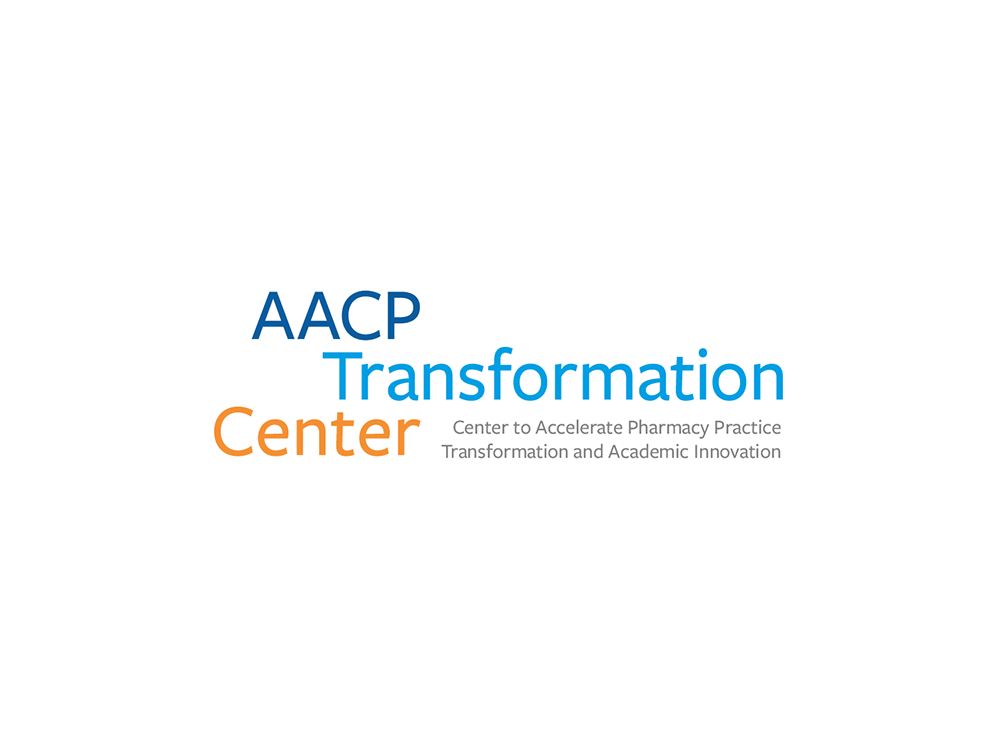For Immediate Release
The hub will coordinate and implement a variety of programs and activities that will advance the contributions of pharmacy educators and practitioners to improve patient care.
Contact: Maureen Thielemans, 703-739-2330 ext. 1022
Arlington, Va.—The American Association of Colleges of Pharmacy (AACP) today announced the formation of the Center to Accelerate Pharmacy Practice Transformation and Academic Innovation, a new unit within AACP’s organizational structure that will expand and enhance academic pharmacy’s contributions to drive change in pharmacy education and practice and improve patient care.
The Center’s two-pronged mission aims to identify practice transformation projects and collaboration models that most-effectively improve health outcomes for all and implement across AACP members the most innovative changes to pharmacy educational programs that can best deliver medication use optimization, improve health outcomes and reduce health disparities.
“AACP’s members and leaders have long engaged in strategic efforts to advance the practice of pharmacy, said AACP Executive Vice President and CEO Lucinda L. Maine, Ph.D., R.Ph. “The Center will fortify our collaborations with those entities committed to the vision of ensuring our graduates are equipped to fully deploy their expertise and compassion for patients to achieve better health outcomes and well-being.”
AACP has selected Melissa Murer Corrigan, R.Ph., CAE, FAPhA, FASHP, as the Center’s Executive Director. Over the past three decades, Corrigan has demonstrated remarkable leadership abilities both inside and outside the profession of pharmacy. Her notable career achievements include leading the 1992 national Scope of Pharmacy Practice Project and creation of the Pharmacy Technician Certification Board (PTCB) in 1995, where she served as Executive Director and CEO for more than 15 years as Vice President, Social Impact Strategy and Programs, focused on equity in education and helping millions achieve workplace success. She also completed an executive residency in association management. Corrigan will work with individuals and organizations across pharmacy and healthcare, including global partners, to advance the aims of the ATC. A national expert advisory panel will be named in early 2022 to guide the initial planning and prioritization of ATC contributions.
“I am excited for the opportunity to work with AACP and many other stakeholders in pharmacy, healthcare and beyond to lead change across pharmacy education and practice," said Corrigan. "My career has focused on connecting people and partners, building new initiatives and delivering innovation. I plan to use my skills and leadership expertise as we build the AACP Transformation Center and work toward innovation in pharmacy, transformation in health care and health equity for all.”
The first major initiative of the ATC will be the “Bridging Pharmacy Education and Practice Summit,” March 3-4, 2022, held simultaneously in six regional locations and collaboratively planned with other national organizations closely connected to pharmacy education and post-graduate training and credentialing. Three hundred participants will engage in strategic analysis and planning around four topics: competency-based pharmacy education, professional identity formation, the continuum of Pharm.D. and post-graduate education, and lifelong learning. The two-day summit will take place on university campuses at the University of Pittsburgh, Lipscomb University, Florida A&M University, University of Texas at Austin, the Big 10 Conference Center in Illinois, and the University of Utah.
The establishment of the ATC extends AACP’s efforts to transform pharmacy practice through collaboration with state and national pharmacy organizations, as well as stakeholders external to the pharmacy profession. AACP has been a longstanding member of the Joint Commission of Pharmacy Practitioners. The Academia/CPESN Transformation (ACT) Collaborative, launched in 2019 under the leadership of the University of Pittsburgh School of Pharmacy, is a prime example of AACP and member activities supporting academic-practice partnerships for healthcare change.
In creating the ATC, the AACP Board of Directors acknowledges the urgency of increasing the intensity of effort behind practice transformation and the requisite innovation in education to effectively position our faculty, preceptors and graduates to fulfill their obligations to achieve the Quadruple Aims of a healthcare system in need of reform.
“This is an important milestone for AACP and our members,” said Stuart T. Haines, Pharm.D., BCPS, BCACP, President of the AACP Board of Directors and Professor and Director of Pharmacy Professional Development at the University of Mississippi School of Pharmacy. “The Center will play a critical role as we implement AACP’s new strategic plan, of which our two most important priorities are leading the transformation of pharmacy practice and optimizing pharmacy education and training across the lifespan of pharmacists. I believe The Center will be a synergistic force, bringing together the best and brightest in our profession. No doubt we have lots of work to do but I’m excited about the future.”

